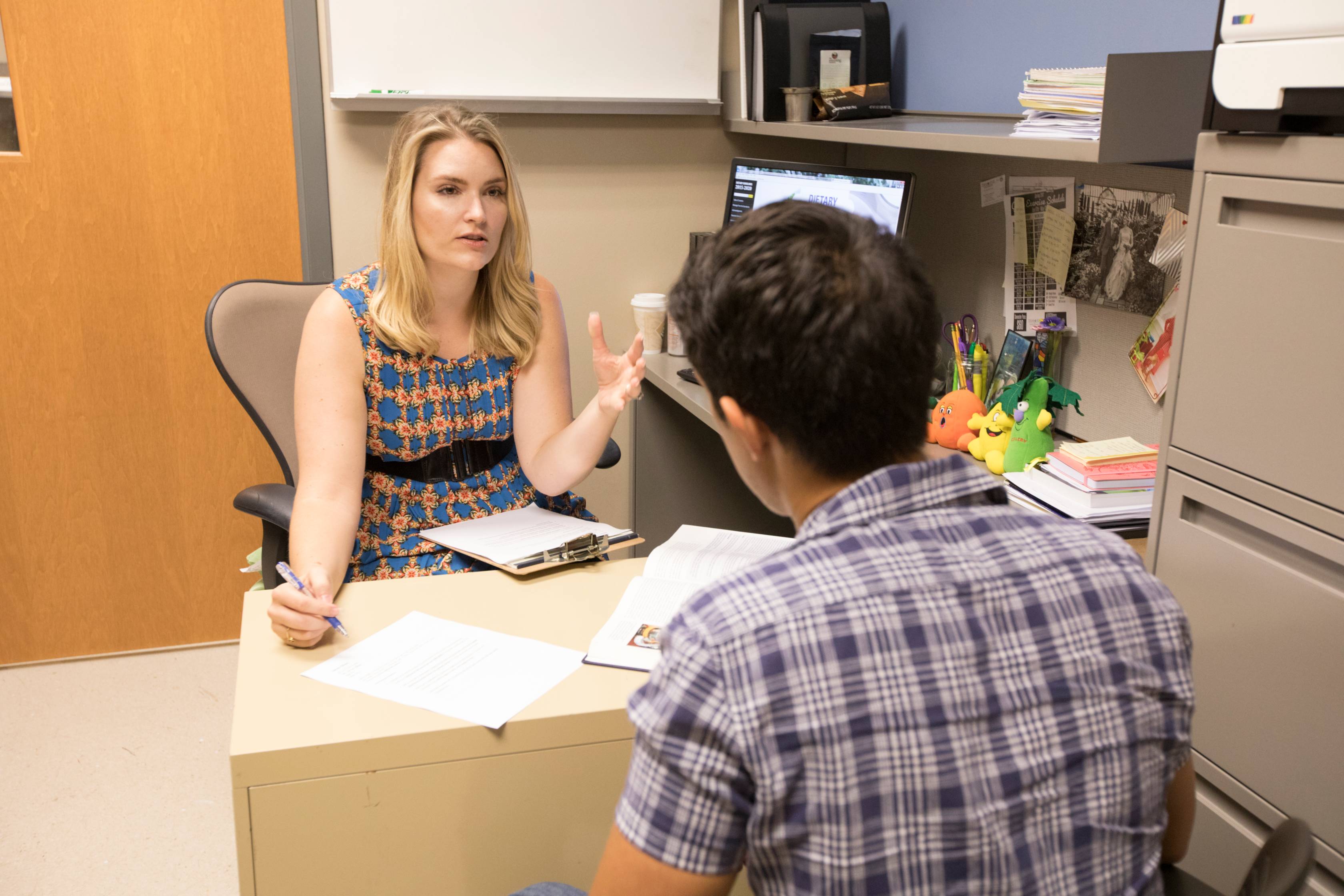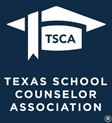School Counseling (SC) Concentration

Email here for more information about the school counseling program
Highlights – Why Texas State?
1. We offer more than the typical amount of clinical training, so that school counselors are prepared to address children’s significant mental health issues.
2. School counselors who take our 60 hour credit track will have completed all coursework necessary to become a Licensed Professional Counselor Associate after graduation.
3. The positive reputation of the TXST School Counseling program will assist you in obtaining a job. We often receive requests from school districts wishing to hire our graduates.
The School Counseling Track prepares graduate counseling students to work with students (EC to grade 12) in schools, as well as consult with teachers and parents. This degree track is accredited by the Council for the Accreditation of Counseling and Related Educational Programs (CACREP).
Clinical Settings for SCs
School counselors typically work in public, private, or charter schools with populations in Early Childhood through grade 12. School counselors with their LPC can also work in community settings and private practice.
School Counseling - Texas School Counseling Certification and preparation for LPC (60 credit hours) Degree Plan
Foundational Courses
- COUN 5328 - Professional Orientation in School Counseling: Leadership, Advocacy, and Accountability
- COUN 5305 - Assessment in Counseling
- COUN 5307 - Theories of Counseling & Personality
- COUN 5316 - Counseling Diverse Populations
- COUN 5350 - Advanced Counselor Ethics
- COUN 5355 - Career Counseling
- COUN 5359 - Psychopathology
- COUN 5367 - Marital and Family Counseling: Current Theories
- COUN 5368 - Developmental Issues in Counseling
- COUN 5391 - Research Methods
Intermediate Courses
- COUN 5354 - Basic Skills in Counseling
- COUN 5358 - Dynamics & Processes in Group Counseling
- COUN 5369 - Child & Adolescent Counseling
- COUN 5344 - Substance Abuse and Counseling
Clinical Courses
- COUN 5338 - Advanced Issues School Counseling: Counseling, Consultation, and Coordination of Services
- COUN 5370 - Intermediate Methods in Counseling Adolescents
- COUN 5373 - Intermediate Methods in Play Therapy
- COUN 5689 - Clinical Practicum (6-credit hour course)
- COUN 5389 - Site-Based Internship
-
Frequently Asked Questions
-
How long will it take me to finish the School Counseling Track?
If attending full-time (i.e., 3 classes in the Fall and Spring, 2 classes in the Summer), you can complete the program in 2.5 to 3 years.
-
Why should I consider taking the School Counseling track?
School Counselors are always needed and make a difference in the lives of children and families. Approximately 20% of school age children can be diagnosed with mental illness and only about 20% of them receive mental health support. School Counselors can bridge that gap as well as provide preventive services. The School Counseling Track also prepares you for LPC Associate licensure. As an LPC, you can also work in community settings and private practice.
-
Do I need to have done two years of teaching to be a School Counselor in Texas?
For decades in Texas, this has been true. Until 8/31/23, you need to have two years of teaching experience in a K-12 setting to become certified as a school counselor in Texas.
On 6/2/23, the Governor signed Senate Bill 798, amending the Texas Education Code effective September 1, 2023: Sec. 21.0462. The qualifications for certification as a school counselor may not include a requirement that a candidate for certification have experience as a classroom teacher.
Prior to January 1, 2024, the State Board for Educator Certification (SBEC) will still need to promulgate the rules necessary to implement the change to Section 21.0462.
School Counseling faculty will update students and applicants as SBEC finalizes these changes to the School Counselor Certification process.
-
Licensure
The School Counseling Degree Plan(60 hour) allows students to meet academic and clinical experience requirements to become a Licensed Professional Counselor Associate after graduation.
Licensed Professional Counselor
The LPC is a clinical license that demonstrates that a practitioner has sufficient knowledge, clinical practice, and supervision to work with individuals dealing with mental health issues in private practice and clinical settings. The LPC is regulated by the Texas State Board of Examiners of Professional Counselors (also referred to as the "LPC Board"). During the Professional Counseling program, student must:
Complete all courses on the School Counseling 60 credit hour track,
Complete all clinical courses, and
Apply for and take the National Counselor Exam. (You can take the NCE before or after graduation.) Review our NCE page for more information about this exam.
After graduation, students have additional requirements in order to become an LPC. These include:
Find an LPC-Supervisor to meet with on a weekly basis to supervise post-graduate clinical hours for LPC-Associate licensure.
Identify a site to complete clinical hours.
Apply for LPC-Associate licensure with the LPC Board.
If you haven't already, apply for and take the National Counselor Exam. If you take the NCE after graduation, you will have to apply through the LPC Board, and NBCC, not Texas State University.
Complete 3,000 post-graduate clinical hours under the supervision of an LPC-Supervisor at board-approved sites. The clinical hours include:
1,500 direct counseling hours
1,500 indirect hours (e.g., supervision, case notes, training)
Turn in all required documents to the LPC Board to upgrade from LPC Associate to LPC license.
School Counseling Faculty
The School Counseling faculty want to support you in the School Counseling degree track! Please contact your advisor to set up a time to discuss your degree plan. If you don't know who your advisor is, contact our wonderful admin, Jacqui Todd.
Dr. Jennifer Greene-Rooks. Ph.D., SC Track Coordinator
Dr. Sarah Blalock, Ph.D., LPC-S, RPT-S, CSC
SC Professional Organizations

Texas School Counselor Association
American School Counselor Association